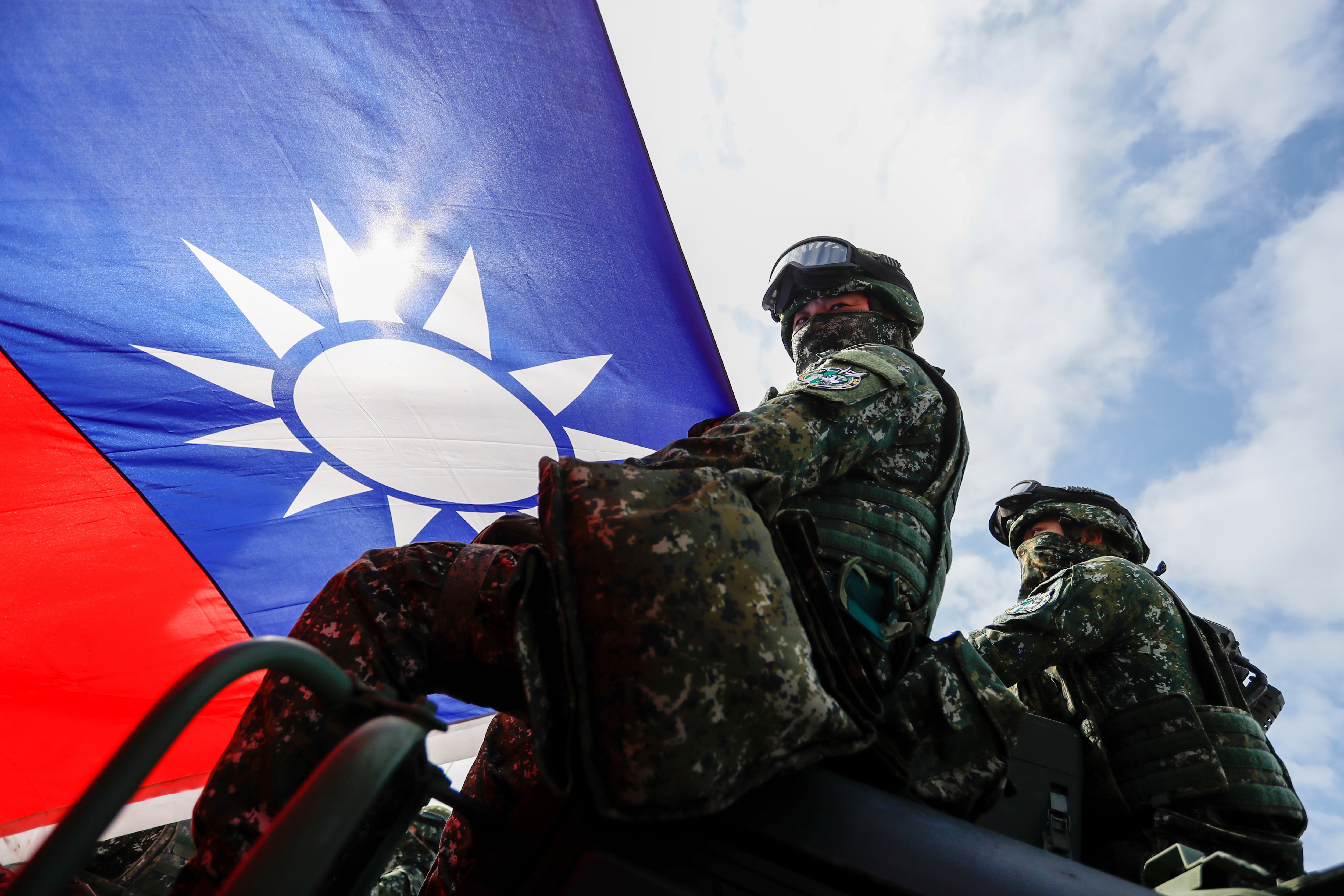WASHINGTON ― The U.S. defense industry’s limited production capacity is responsible for delays in U.S. arms sales to Taiwan, which now stand at almost $19 billion in value, a senior U.S. State Department official said.
“How I would characterize it is that we have provided really significant foreign military sales to Taiwan, and that there are challenges on the production side,” Assistant Secretary of State for Political-Military Affairs Jessica Lewis told reporters Friday.
The comments came as U.S. lawmakers from both parties returning from a Taiwan visit are pressuring the Biden administration about the lag in deliveries on U.S. arms sales to Taiwan, aimed at helping deter China from invading. Beijing views Taiwan as a Chinese territory that must be brought under its control, by force if necessary.
The defense industrial base is facing “across the board” challenges that aren’t specific to Taiwan, Lewis said. Supply chain and worker constraints in the wake of the COVID pandemic are hindering the industry’s ability to meet increased demand for weapons as countries arm themselves in the wake of Russia’s invasion of Ukraine.
“Our defense industrial base right now is very focused ― and we are encouraging them to be focused ― on how to produce more of the key weapons that are needed in all of these places for across the world, to make sure that we can get for example, Taiwan ― but not just Taiwan, eastern flank countries ― what they need in time,” she said.
The Defense Department has relevant legal authorities and Deputy Defense Secretary Kathleen Hicks is leading efforts to address the matter, according to Lewis.
RELATED

Rep. Mike Gallagher, chairman of the new House Select Committee on China, said in a statement after his recent four-day Taiwan visit that “we should move heaven and earth to clear the nearly $19 billion backlog of Foreign Military Sales Items that have been approved but not delivered to Taiwan.”
The backlog in deliveries on U.S. foreign military sales to Taiwan includes Boeing’s Harpoon anti-ship missiles and Lockheed’s F-16 fighter aircraft and High-Mobility Artillery Rocket Systems, as well as asymmetric capabilities such Lockheed’s Javelin and Raytheon’s Stinger missiles.
Gallagher, R-Wis., told The New York Times that Taiwan’s purchase of Harpoon missiles, which would be critical for the island nation to repel an amphibious invasion, is behind Saudi Arabia in the delivery queue but should be granted priority.
Ukraine’s consumption of U.S.-supplied materiel is outstripping the capacity of American defense firms to quickly replenish it, which is seen a negative sign as the U.S seeks to deter China. A Center for Strategic and International Studies report last month that found the U.S. defense-industrial base is unprepared for a notional battle with China over Taiwan.
Aerospace Industries Association President and CEO Eric Fanning told a recent congressional hearing on the health of the defense industrial base that wavering demand stymies efforts to stockpile munitions or surge production. “To have that capability to surge requires a consistent, long-term [government funding] commitment,” Fanning said.
Joe Gould was the senior Pentagon reporter for Defense News, covering the intersection of national security policy, politics and the defense industry. He had previously served as Congress reporter.





